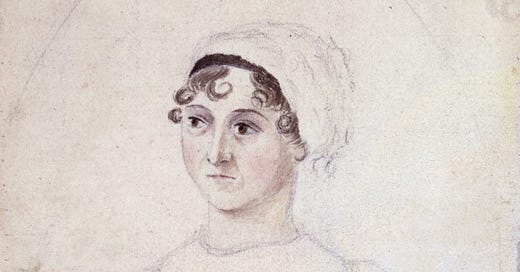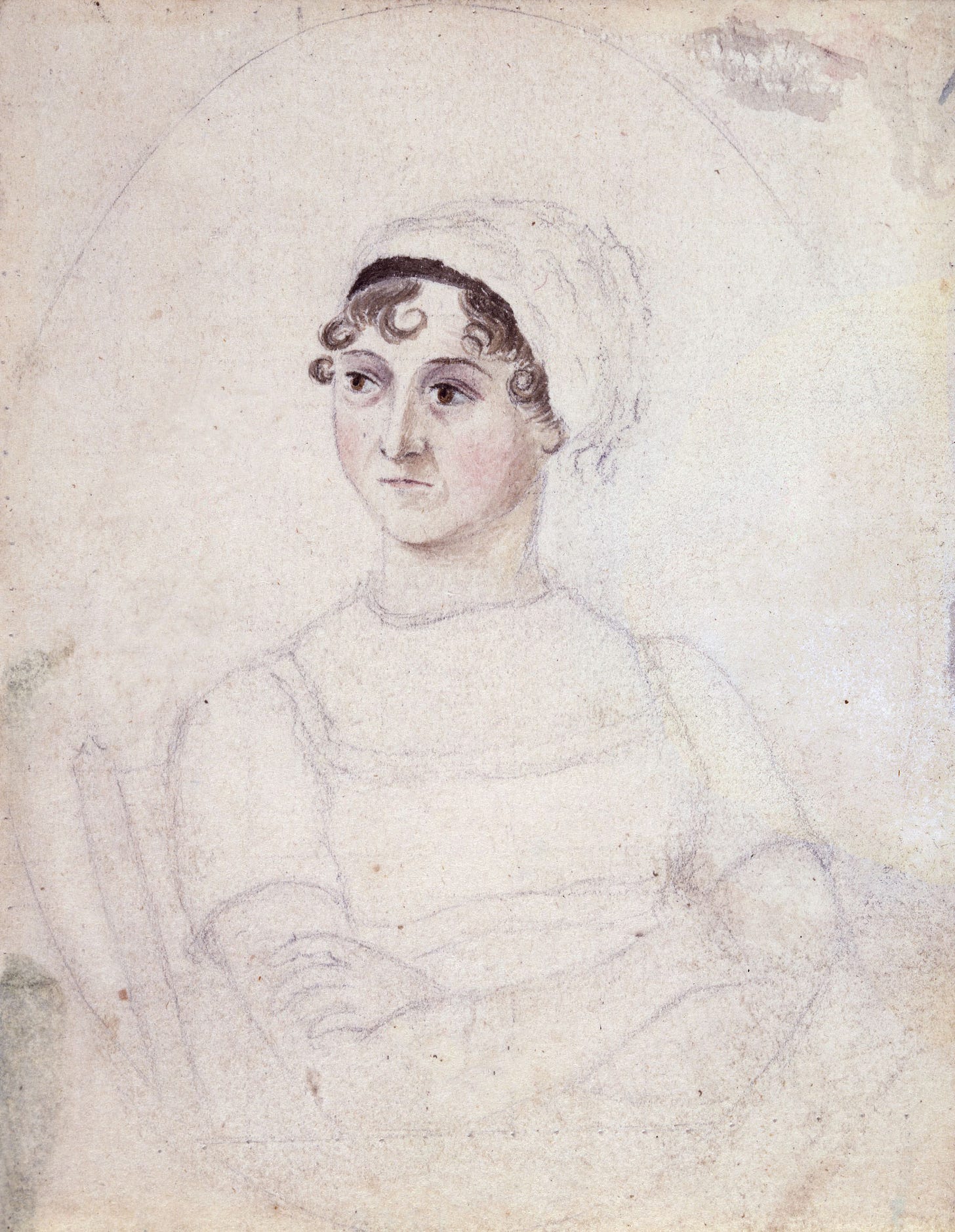“I could not sit seriously down to write a serious Romance under any other motive than to save my life, & if it were indispensable for me to keep it up & never relax into laughing at myself or other people, I am sure I should be hung before I had finished the first chapter. No - I must keep my own style & go on in my own way; and though I may never succeed again in that, I am convinced that I should totally fail in any other.” – Jane Austen’s Letters
If you peruse any of the popular pages dedicated to Jane Austen on platforms like Facebook, you’ll undoubtedly encounter the common misconception that Jane Austen was a “romantic.” Specifically, the belief that she bought into and promoted the idea that the focus and pinnacle of a woman’s life should be courtship and marriage, and that she believed in the restrictive codes of conduct for women in her day.
But the opposite was true. Jane Austen was unconventional and questioned most of the rules and conditions of her time more than most of her contemporaries. She had a keen eye for injustice.
The Culprit: Syrupy, Oversimplified Adaptations
I think a significant reason for the misunderstandings about Austen’s intentions is how her work has been adapted for the screen. In the film and TV adaptations, the focus is the romantic relationships, and there are very few substantive hints in the direction of Jane Austen’s sharp irony and questioning of women’s social restrictions and difficulties in the early 19th century.
As someone who studied Jane Austen at university and remains an enthusiastic reader (re-reader, that is) of her novels, I find the misconception that she was a traditionalist who idealized courtship and marriage extraordinarily frustrating. I also believe that there is an agenda behind this, but that is an entirely different topic.
Jane Austen wasn’t a romantic, especially not in the context of her time. She knew that the result of romance for women was all too often losing any little bit of freedom that they may have had. Marriage occasionally (very occasionally) came with great wealth and comfort, but that wealth would never belong to the women. In fact, any wealth they happened to bring to the marriage would legally belong to their husbands.
So, why did Austen make romantic courtship and marriage so central in her novels? The answer lies in the material realities of trying to publish as a woman in 19th-century England. As an aspiring novelist, Jane was all too aware that love and romance were usually the only topics that publishers and readers thought appropriate for female writers. And Jane’s dream was to be a published author.
Once you discern Jane Austen’s strongly ironic and satirical subtext, you’ll quickly see that Austen fully understood the profound shortcomings of Regency England’s social system, especially the situations in which women found themselves in the context of courtship and marriage.
Jane Austen’s Strength Was Her Irony and Social Commentary
I’m a devotee of Austen’s sharp social commentary and criticism of injustice. If you haven’t noticed it, you need to read much more closely and deeply, and analyze the subtext.
My love for Jane Austen is also rooted in her storytelling (I’m a big fan of the 19th-century omniscient third-person point of view), sentence structure (yes, those long, complex sentences), and her irony and satirical streak.
Jane felt intense frustration about the limitations of life as a woman her entire life. As Lucy Worsley explains in Jane Austen at Home: A Biography, “Jane…was jealous of her brothers. ‘Edward & Frank are both gone out to seek their fortunes,’ she wrote, ‘the latter is to return soon & help us seek ours.’” Like most of Jane’s statements, this was said ironically. As Lucy Worsely has explained, “Jane was joking.”
The novelist knew that she and her sister had no way to seek their own fortunes. Her only hope was her writing, and her publishing success would be relatively limited (compared to what it would likely have been if she had been a man, especially a wealthy man).
Does anything else need to be said? I don’t think it does.
References
Worsley, Lucy. Jane Austen at Home: A Biography (2017).




